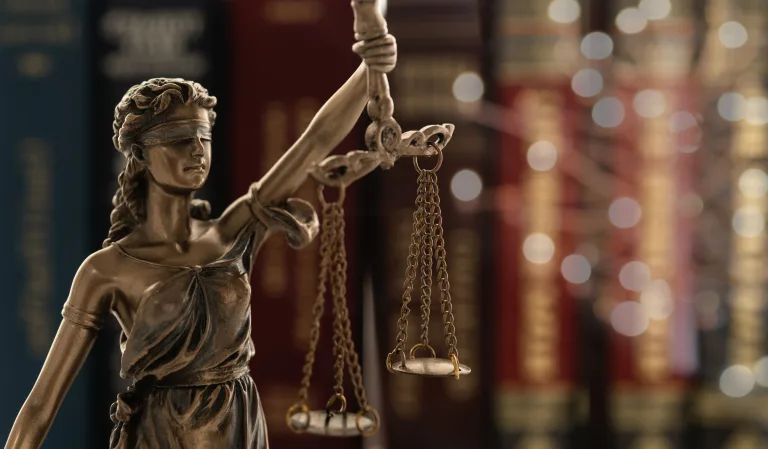Charter rights: Overview

The Charter of Rights and Freedoms is one of Canada’s most important laws. Learn the key rights and freedoms protected by the Charter and how to enforce your Charter rights.
What you should know
The Charter of Rights and Freedoms is part of Canada’s Constitution and protects a broad range of rights and freedoms.
The Charter guarantees certain fundamental freedoms:
freedom of conscience and religion
freedom of thought, belief, opinion and expression, including freedom of the press and other media of communication
freedom of peaceful assembly
freedom of association
The Charter guarantees democratic rights. It gives every Canadian citizen the right to vote in federal and provincial elections. It sets the maximum time between elections.
The Charter guarantees mobility rights. It gives every citizen the right to enter, remain in, and leave Canada. It gives everyone the right to move to and pursue a living in any province.
The Charter guarantees a number of legal rights, including the right to:
life, liberty and security of the person
be secure against unreasonable search or seizure
not be arbitrarily detained or imprisoned
be informed promptly of the reasons for any arrest or detention
have a lawyer, if you are arrested
be presumed innocent until proven guilty in a fair and public hearing by an impartial tribunal, if you are charged with a crime
not be subjected to cruel and unusual punishment
not have evidence you give be used against you
The Charter guarantees equality rights. It says everyone is equal before the law and has the right to equal protection of the law, without discrimination. It highlights the right to be free of discrimination based on race, national or ethnic origin, colour, religion, sex, age, or mental or physical disability.
The Charter also makes English and French the official languages of Canada.
The Charter itself recognizes that some laws might violate the Charter yet be justifiable in the broader public interest. Where a law violates a Charter right, a government can try to justify the violation as a reasonable limit under section 1 of the Charter. Under that section, a reasonable limit needs to be “prescribed by law” and “demonstrably justified in a free and democratic society."
If a government tries to rely on section 1 to justify a Charter violation, a court can decide if the violation is a reasonable limit. The court will look at whether the law has an important objective, and whether the government chose a proportionate way to meet that objective — a way that interferes as little as possible with Charter rights. For example, could the government achieve its objective in another way, without violating Charter rights? Does the law do more harm than good?
Section 1 applies only to written laws. It does not apply to government actions. Examples of government actions would be the actions of a police officer in making an arrest, or a decision by a government department to deny benefits. In these situations, where a government action violates the Charter, section 1 does not let the government try to justify the violation. The action is unconstitutional. Lawyers call this a Charter breach.
If a law cannot be justified as a reasonable limit on a right or freedom, a federal or provincial government can try to declare that the law operates notwithstanding the Charter. The Canadian Parliament has never used this notwithstanding clause, but Quebec, Alberta, Saskatchewan, and Yukon have done so.
You can’t rely on the Charter to challenge every violation of your rights. The Charter controls laws and government actions. It doesn’t control private citizens, businesses, or organizations. Before you can claim the Charter’s protection, you must show that the government, or some agency very closely connected to government, such as a school board or labour relations board, violated your rights.
If a private individual, organization, or company violates your rights, you may be able to assert a claim under human rights law. Depending on the situation, you might be able to rely on the BC Human Rights Code or the Canadian Human Rights Act. For more, see our information on human rights and discrimination protection, and protection against job discrimination.
Canadian courts interpret and enforce the Charter. Courts have the power to strike down and invalidate laws or government actions. They will do so if necessary to defend a protected right or freedom. If you think a provincial or federal law or action violates your Charter rights, you can ask a court to strike down the law or grant another remedy. A remedy is a court order to give someone their legal rights or to compensate them for their rights not being respected.
What a court can do depends on what you ask for. You may ask a court to declare that your personal rights have been violated, or to give you a personal remedy. In criminal cases, for example, an accused person can ask the court to end the trial or to exclude evidence obtained in violation of the Charter.
Or you may ask a court for a general remedy not specific to your case, such as striking down a law entirely.
In considering a Charter challenge, the court will generally assess two questions.
First, were your rights under the Charter violated?
You have to show the court that one of your Charter rights was violated. This usually means persuading the judge that a law or government action violated a specific Charter right. For example, you might complain that a law restricting what signs you can put in your window violates freedom of expression. If you prove a violation, the court will move on to a second question.
Second, can the government justify the law as a reasonable limit?
If a court finds the government violated your rights, the next step depends on what caused the violation: was it a written law, or was it an action by government? If government action caused the violation, the government does not get a chance to justify the violation.
If a written law violated your rights, the court will then consider whether the government can justify the violation as a reasonable limit under section 1 of the Charter. Charter rights are balanced against the rights of others and the interests of society. The court will consider: Is the violation reasonable and justified in a free and democratic society? To decide that, the court looks at several things, including whether the benefits of the law are significant enough to justify violating a Charter right, and whether the government could have achieved its objectives in some other way that did not violate anyone’s rights or freedoms.
Typically, the government tries to show the law’s objective is important to Canadian society, and the violation of Charter rights is minimal. The more severe the violation, the harder it is for government to justify it. Charter cases can be hard to resolve because courts have to consider and balance many competing interests. The court must go beyond the narrow facts of one case and consider the competing interests in relation to a law and how it operates for society.
If you prove a violation of a Charter right, and the government cannot justify the violation as a reasonable limit under section 1, the next question is what kind of remedy or consequence is appropriate. Different kinds of remedies apply to different types of cases.
In some cases, a broad remedy may be necessary, such as declaring that a law is unconstitutional. This is often referred to as ”striking down a law." For example, if the government passed a law that discriminated based on gender, the court could strike down the law, giving a remedy that helps everyone affected by the law.
In other cases, an individual (personal) remedy is ordered. Section 24 of the Charter allows a person whose rights have been violated to apply to a court for a remedy the court considers appropriate and just in the circumstances. If a government official took the action — for example, a police officer conducted an unreasonable search — the court will often give an individual remedy that helps only the person whose rights were violated. The court may say that (for example) drugs found during an illegal search can’t be used as evidence in the accused person’s criminal trial. This helps the accused person, but it doesn’t change the law for anyone else.
This information from People’s Law School explains in a general way the law that applies in British Columbia, Canada. The information is not intended as legal advice. See our disclaimer.
Related
On Dial-A-Law
Dial-A-Law has more information on Your rights & liberties in the section on Rights & citizenship.
